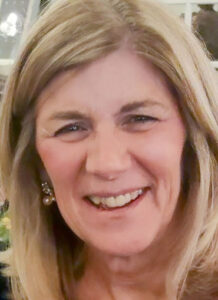By Chris Pries
Guest Column

In part one of this column (Nov. 30), we learned that moral courage is the underpinning of ethical behavior, requiring a commitment to fundamental principles despite potential risks including threats to reputation, shame, emotional anxiety, isolation from colleagues, retaliation and loss of appointment. Morally courageous individuals are prepared to face tough decisions despite the consequences they may face.
In health care we often see another type of courage, psychological or vital courage. This virtue is at work as a person battles personal struggles or illnesses and perseveres with efforts at change. It might be displayed by the person recovering from alcoholism, mental illness, abuse or the young mother twice diagnosed with leukemia, thriving in the face of this illness while raising five children. Never underestimate the courage it takes to get up every morning, to face a battle against your symptoms.
We recognize these examples of courageous behavior when we see them, but can we find what is common among them? Are there certain characteristics that individuals exhibit that tell us they can be more courageous? Is this a personality characteristic that one is just born with? Or are we able to look more deeply at human behavior and develop a process to help individuals, especially those in the health care field, to be courageous in their work and in their daily activities.
We must recognize that courageous practice comes out of a value set that honors connection, compassion, listening and vulnerability. Believing ourselves and our patients to be worthy of care and acknowledging our ability to offer comfort is the bedrock of our intention. Acknowledging that we are created in the image and likeness of God, deserving of dignity and love, is vital. We believe we are loved and cherished by God and that our professional behaviors and personal lives must reflect that love. To know God’s love allows us to be compassionate towards others. Through our baptism, we are called to holiness and active participation in the Church’s life and mission. We have an active part in God’s story and in bringing his love to the world.
To be courageous also means listening to feedback that may be uncomfortable, we may hear ideas and thoughts that are uncomfortable. I encourage you to begin to be comfortable with being uncomfortable. There is no courage without being all in. That means being authentic and honest, not hiding and going along with group think. Recognize the opportunity for courageous action, it comes when you feel that little hesitation or anxiety. That’s the moment. Be in it. Get comfortable with being uncomfortable!
We must find the face of God in EVERYONE. Rather than despising or being disgusted by people, I must see their behavior in a different light. We must show up for people in pain and not look away. To me that is being present and in relationship with patients and not looking away when they are sharing hard things. Taking the time isn’t always easy or convenient but it is what Jesus would wish us to do.
Six attributes will assist in the development of courageous behavior and decision-making:
Facing fear yet choosing action. We know fear and courage are brothers. Courage is not the absence of fear but the triumph over it, being terrified but going ahead and doing what must be done. That’s what courage is all about.
Following your heart. Passion should be at the heart of courage. Having courage to follow our heart and our intuition will help guide us in what is right.
Persevering in the face of adversity. Mark Twain once said it’s not the size of the dog in the fight but the size of the fight in the dog. Courage doesn’t always roar loudly to encourage us, sometimes courage is the little voice at the end of the day that says I’ll try again tomorrow.
Standing up for what is right. We know that sometimes standing up against evil is more important than defeating it; we are encouraged to speak our minds even if our voice shakes.
Expanding our horizons and letting go of the familiar. Lord Chesterfield once said man cannot discover new oceans unless he has the courage to lose sight of the shore. We know that our world shrinks or expands in proportion to our courage.
Facing suffering and death with dignity. Traditionally, Catholics have prayed for the grace of a happy death. Now advances in modern medicine increasingly pose a challenge of coping with a terminal illness that may last months or even years. Suffering holds redemptive and transformative properties that allow people to arrive at a clearer understanding of Christ and his relationship to them.
Our challenge as Catholic health care workers in today’s culture is to walk the difficult path of truth and love, holding firmly to the truths of our faith while acting with love and reaching out to those on the margins.
I pray that we will be brave, step into the arena and help shape the bioethical standards of health care and participate fully in the conversations.
(Chris Pries is a psychiatric nurse practitioner who has worked at Vera French Community Mental Health Center in Davenport for 48 years. She is a member of St. John Vianney Parish in Bettendorf and serves as a parish health minister.)











